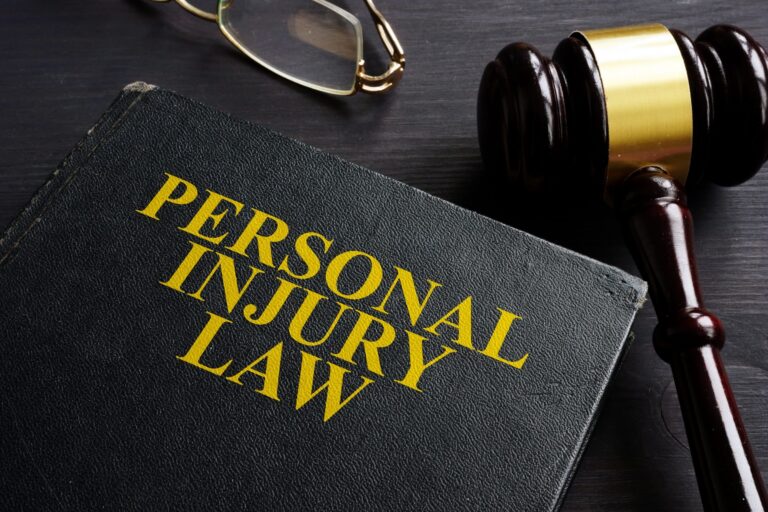Key Takeaways:
- Finance lawyers play an essential role in ensuring compliance and mitigating legal risks for financial institutions and businesses.
- Financial law encompasses areas such as banking, securities, corporate finance, insurance, and investment management.
- Finance lawyers assist businesses in navigating complex financial transactions and ensuring compliance with laws and regulations.
- They help develop comprehensive compliance programs and provide guidance on issues such as anti-money laundering and data privacy.
- Finance lawyers provide expert legal advice on financial matters and negotiate terms with other parties involved in financial transactions.
- They ensure compliance with financial regulations and work with compliance officers to establish effective compliance programs.
- Finance lawyers handle complex financial transactions including mergers and acquisitions, IPOs, and debt and equity financings.
- They contribute to business growth by minimizing legal risks, supporting mergers and acquisitions, and safeguarding intellectual property.
- Finance lawyers need to embrace technological advancements, navigate global economic changes, and adapt to regulatory reforms and emerging legal trends.
1. Understanding the Role of Finance Lawyers
In today’s complex and highly regulated business world, finance lawyers play an essential role in ensuring compliance and mitigating legal risks for financial institutions and businesses. Their expertise in financial law and ability to navigate complex financial regulations make them invaluable assets for companies operating in this ever-changing landscape.
1.1 The Scope of Financial Law
Financial law encompasses a wide range of legal practices and regulations that govern financial transactions and institutions. It includes areas such as banking law, securities regulation, corporate finance, insurance law, and investment management. Finance lawyers specialize in these areas and are well-versed in the specific rules and regulations that apply to their clients’ financial activities.
They must stay updated with the evolving financial and regulatory landscape to provide accurate and timely advice to their clients and ensure compliance with laws and regulations.
1.2 The Importance of Finance Lawyers in Business
Finance lawyers play a crucial role in business by providing legal advice and guidance on financial matters. They help companies navigate through complex financial transactions, ensure compliance with relevant laws and regulations, and minimize legal risks.
Additionally, finance lawyers assist businesses in structuring financing arrangements, negotiating contracts, and resolving financial disputes. Their expertise in financial law helps companies make informed decisions and protect their interests in a highly competitive environment.
1.3 How Finance Lawyers Navigate Complex Financial Regulations
One of the critical tasks of finance lawyers is to keep abreast of complex and ever-changing financial regulations. They help their clients navigate these regulatory landscapes by providing interpretations of laws, identifying potential legal risks, and ensuring compliance.
Finance lawyers work closely with businesses to develop strategies that comply with regulations while achieving the company’s financial goals. They analyze various regulatory frameworks, such as those imposed by governmental authorities or self-regulatory organizations, to develop comprehensive compliance programs that address specific business needs.
Furthermore, finance lawyers provide guidance on issues such as anti-money laundering regulations, data privacy, consumer protection, and financial reporting requirements. They assist companies in building robust internal controls and systems to prevent fraudulent activities, ensure financial transparency, and protect stakeholders’ interests.
2. Key Responsibilities of Finance Lawyers
The role of finance lawyers extends beyond providing legal advice. They have a diverse range of responsibilities that contribute to the financial success and growth of businesses. Let’s explore some of their key responsibilities:
2.1 Providing Expert Legal Advice on Financial Matters
Finance lawyers are experts in financial law and provide specialized legal advice to businesses on a wide range of financial matters. They assist clients in understanding the legal implications of financial transactions, such as mergers and acquisitions, debt and equity offerings, and strategic investments.
They analyze complex legal documents, such as loan agreements, securitization documents, and bond offerings, to ensure their clients’ interests are protected. Finance lawyers also negotiate terms and conditions with other parties involved in financial transactions to secure favorable outcomes for their clients.
2.2 Ensuring Compliance with Financial Regulations
Compliance with financial regulations is of paramount importance for businesses to avoid legal liabilities and reputational risks. Finance lawyers play a critical role in ensuring their clients maintain compliance with applicable laws and regulations.
They conduct comprehensive audits of existing procedures and policies to identify any potential compliance gaps. In cases where violations are discovered, finance lawyers develop remediation plans to address the issues and prevent future non-compliance.
Furthermore, finance lawyers stay updated with emerging regulatory changes and advise businesses on adapting to new requirements. They work closely with compliance officers and internal audit teams to establish effective compliance programs that align with best practices and meet regulatory requirements.
2.3 Handling Complex Financial Transactions
Finance lawyers are skilled in handling complex financial transactions on behalf of their clients. They provide guidance throughout the transaction process, from structuring the deal to negotiating and drafting the necessary legal documents.
In mergers and acquisitions, finance lawyers conduct due diligence to assess the legal risks and liabilities associated with the transaction. They negotiate and draft acquisition agreements, shareholder agreements, and other contractual documents to protect their clients’ interests and ensure a smooth transaction process.
In addition to mergers and acquisitions, finance lawyers also handle other complex financial transactions such as initial public offerings, debt and equity financings, and securities offerings. They ensure compliance with securities regulations, stock exchange requirements, and other relevant laws to facilitate successful transactions.
3. How Finance Lawyers Contribute to Business Growth and Success
Finance lawyers play a vital role in contributing to the growth and success of businesses. Their expertise and guidance help companies navigate legal complexities, mitigate risks, and seize growth opportunities. Here are some ways finance lawyers contribute:
3.1 Minimizing Legal Risks for Financial Institutions
Financial institutions operate in highly regulated environments, where even minor legal issues can have significant consequences. Finance lawyers assist banks, insurance companies, and other financial institutions in minimizing legal risks.
They review and negotiate contracts, such as technology agreements, outsourcing arrangements, and vendor contracts, to ensure favorable terms and protect their clients’ interests. Finance lawyers also advise financial institutions on compliance with comprehensive regulatory frameworks, such as Basel III, Dodd-Frank Act, and Know Your Customer (KYC) requirements.
3.2 Supporting Business Expansion through Mergers and Acquisitions
Finance lawyers play a critical role in facilitating business expansion through mergers and acquisitions (M&A). They assist companies in identifying potential targets, conducting due diligence, negotiating deal terms, and navigating regulatory approvals.
Finance lawyers ensure that M&A transactions are conducted in compliance with applicable laws and regulations. They also assist in developing strategies to integrate the acquired business smoothly and maximize synergies.
3.3 Safeguarding Intellectual Property and Trade Secrets
Intellectual property (IP) and trade secrets are valuable assets for businesses, especially in knowledge-intensive industries. Finance lawyers assist companies in protecting their IP rights and trade secrets from unauthorized use.
They advise on strategies to secure patents, trademarks, copyrights, and trade secrets. Finance lawyers also draft and negotiate licensing and technology transfer agreements to ensure proper commercialization of intellectual property.
4. The Future of Finance Lawyers in an Evolving Business Landscape
In an ever-evolving business landscape, finance lawyers face several challenges and opportunities. To stay relevant and effectively serve their clients, finance lawyers need to adapt to new trends and advancements. Let’s explore some key areas that will shape the future of finance lawyers:
4.1 Embracing Technological Advancements in the Financial Industry
The financial industry is experiencing significant technological advancements, such as blockchain, artificial intelligence, and big data analytics. Finance lawyers need to embrace these technologies and understand their legal implications.
They must stay updated with emerging legal issues related to fintech, cybersecurity, data privacy, and electronic payments. Finance lawyers play a vital role in advising businesses on the legal and regulatory aspects of adopting new financial technologies and ensuring compliance with relevant laws.
4.2 Navigating the Impact of Global Economic Changes
The global economic landscape is constantly changing, influenced by factors such as geopolitical events, trade wars, and regulatory reforms. Finance lawyers need to stay informed about these changes and their potential impact on their clients’ businesses.
They must provide insights and strategic advice to help businesses navigate economic uncertainties, manage financial risks, and identify growth opportunities. Finance lawyers also play a crucial role in assisting businesses in cross-border transactions and ensuring compliance with international financial regulations.
4.3 Adapting to Regulatory Reforms and Emerging Legal Trends
Regulatory reforms and emerging legal trends have a significant impact on the financial industry. Finance lawyers need to adapt to these changes to provide effective advice and guidance to their clients.
They must stay updated with changes in financial regulations, such as Basel III, MiFID II, and GDPR. Finance lawyers help businesses understand the implications of these reforms and assist in developing strategies to comply with new requirements.
Furthermore, finance lawyers need to anticipate emerging legal trends, such as sustainable finance and impact investing, and advise businesses on incorporating these practices into their operations. They play a crucial role in ensuring that businesses operate ethically and sustainably in a rapidly changing world.
In conclusion, finance lawyers are instrumental in navigating the complex financial and legal landscape of today’s business world. Their expertise in financial law, ability to ensure compliance, and strategic guidance contribute to the growth and success of businesses. As the business landscape continues to evolve, finance lawyers need to stay aware of emerging trends and technologies to adapt and provide effective legal support to their clients.
FAQ
Question: What is the role of finance lawyers? Answer: Finance lawyers play an essential role in ensuring compliance and mitigating legal risks for financial institutions and businesses. They provide legal advice, navigate complex financial transactions, ensure compliance with laws and regulations, and minimize legal risks.
Question: What areas does financial law encompass? Answer: Financial law encompasses areas such as banking, securities, corporate finance, insurance, and investment management. Finance lawyers specialize in these areas and are well-versed in the specific rules and regulations that apply to their clients’ financial activities.
Question: How do finance lawyers navigate complex financial regulations? Answer: Finance lawyers help their clients navigate complex financial regulations by providing interpretations of laws, identifying potential legal risks, and ensuring compliance. They develop comprehensive compliance programs, provide guidance on specific issues such as anti-money laundering and data privacy, and assist in building robust internal controls and systems.
Question: What are the key responsibilities of finance lawyers? Answer: Finance lawyers provide expert legal advice on financial matters, ensure compliance with financial regulations, and handle complex financial transactions. They negotiate and draft legal documents, conduct due diligence, and assist in the development of strategies for business expansion.
Question: How do finance lawyers contribute to business growth and success? Answer: Finance lawyers contribute to business growth and success by minimizing legal risks, supporting mergers and acquisitions, and safeguarding intellectual property. They provide guidance on compliance with financial regulations, assist in developing strategies for business expansion, and protect intellectual property rights and trade secrets.
Question: What challenges and opportunities do finance lawyers face in the future? Answer: Finance lawyers need to embrace technological advancements in the financial industry, navigate the impact of global economic changes, and adapt to regulatory reforms and emerging legal trends. They must stay updated with legal issues related to fintech, cybersecurity, and data privacy, provide insights on economic uncertainties, and advise on compliance with international financial regulations.
Question: How do finance lawyers adapt to regulatory reforms and emerging legal trends? Answer: Finance lawyers adapt to regulatory reforms and emerging legal trends by staying updated with changes in financial regulations, assisting businesses in compliance with new requirements, and anticipating emerging trends such as sustainable finance. They provide guidance on incorporating new practices into operations and ensure businesses operate ethically and sustainably.
Question: What is the conclusion about the role of finance lawyers in today’s business world? Answer: Finance lawyers are instrumental in navigating the complex financial and legal landscape of today’s business world. Their expertise, ability to ensure compliance, and strategic guidance contribute to the growth and success of businesses. They need to adapt to emerging trends and technologies to provide effective legal support to their clients.
Useful Resources:
- https://www.law.com/finance/ – A website dedicated to finance law, providing news, articles, and resources for finance lawyers.
- https://www.barassociation.com/ – The official website of the Bar Association, where you can find resources and information related to finance law.
- https://www.sec.gov/ – The official website of the U.S. Securities and Exchange Commission, offering resources on securities regulations and compliance.
- https://www.bis.org/ – The official website of the Bank for International Settlements, providing information on global financial regulations and standards.
- https://www.bloomberg.com/ – A leading financial news and information platform, offering insights and analysis on financial markets and legal trends.
- https://www.law.cornell.edu/ – Cornell Law School’s Legal Information Institute, providing access to statutes, regulations, and case law related to finance law.
- https://www.acfcs.org/ – The Association of Certified Anti-Money Laundering Specialists (ACAMS), offering resources and training on anti-money laundering compliance.
- https://www.iflr1000.com/ – International Financial Law Review (IFLR), a leading source of news and analysis on financial law, including rankings of top law firms and lawyers.









